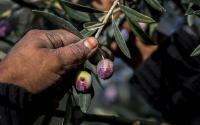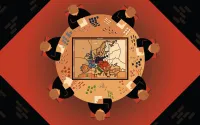Common Dreams / Published on Tuesday, March 8, 2005 by Agence France-Presse
Women's groups were to embark on a global march for equal rights, International Women's Day, amid fresh reports which paint a fairly grim picture of their plight in many parts of the world.
The world tour for a charter for equal rights gets underway in Sao Paulo, Brazil and will come to an end in Ouagadougou, Burkina Faso, in October after passing through over 50 countries in between.
The Women's Global Charter for Humanity was adopted by women's rights groups in Kigali, the Rwandan capital, in December.
Organizers expect 30,000 women to attend Tuesday's start of the tour. Ouagadougou, the Burkina Faso capital, was chosen as the final destination because of its poverty and low level of protection for women.
The charter proposes "to build another world where exploitation, oppression, intolerance and exclusion no longer exist, and where integrity, diversity and the rights and freedoms of all are respected."
The Montreal-based World March of Women which authored the document "views patriarchy as the system oppressing women and capitalism as the system that enables a minority to exploit the vast majority of women and men".
Some of the worst problems experienced by women around the world were highlighted in a new report by the World Organization Against Torture, published to coincide with Women's Day.
"Gender plays a major role on the type of torture used, the circumstances in which torture is used, the consequences and the availability and access to justice," the worlds largest coalition of non-governmental organizations fighting against arbitrary detention, torture, summary and extrajudicial executions, said in its report.
The anti-torture group in particular denounced the fact that women continue to be denied legal protection against the flaunting of national and international rights, with the effect of offering impunity to the transgressors.
The World Organization Against Torture (WOAT) denounced the rape, and other violence against women and girls, perpetrated in Bangladesh, Colombia, Greece, Sri Lanka, Nepal and Sudan.
Meanwhile the UN food agency said Tuesday it was committed to reducing additional burdens often put on women in developing countries, as children have a better chance of growing up well-nourished when women are in control of food.
"While women's access to food is all important, it is vital that we minimize the impact of the additional burden that this may create," said James Morris, executive director of the World Food Program.
Practice had shown that ensuring women's control over food often adds to an already heavy burden of responsibility, the agency said.
Women are also increasingly in the line of fire from the multi-billion-dollar international trade in small arms, according to a report released on Monday by Amnesty International, Oxfam and a third group.
In South Africa, a woman is shot dead by a current or former partner every 18 hours, while in the United States, two out of every three women killed by their husbands are shot, said the report released on the eve of International Women's Day.
"Women are silent sufferers in the proliferation of small arms. This is the scandal against the human race," said Judy Bassingthwaite, a representative of the South African-based International Action Network on Small Arms which also authored the report entitled: "The Impact of Guns on Women's Lives".
In Asia, women trail well behind their male counterparts in terms of social-economic advancement although the gap is closing in some countries, a regional survey released Monday said.
The inaugural MasterIndex of Women's Advancement measuring the social-economic success of women in 13 regional economies, MasterCard International said.
A score below 100 indicated gender inequality in favor of men.
It used four key indicators -- labor force, tertiary education, managerial positions and median income. Of the 13 markets surveyed, gender inequality was highest in South Korea with a score of 45.5 followed by Indonesia at 52.5 and Japan at 54.5.
Women in Thailand fared best with scores of 92.3 followed by Malaysia at 86.2, China at 68.4 and Australia at 67.6.
It's not all bad news for women, however.
A new women's political party is set to emerge in Sweden, a country already considered a world-leader in women's rights.
And in Kuwait on Monday the parliament agreed to a government request to speed up moves to look into a bill that would grant women political rights, but did not set a date for the proposed debate.
However the European Union voiced shock and concern at the "disproportionate" use of force by Turkish police to clamp down on a demonstration in Istanbul ahead of International Women's Day.






